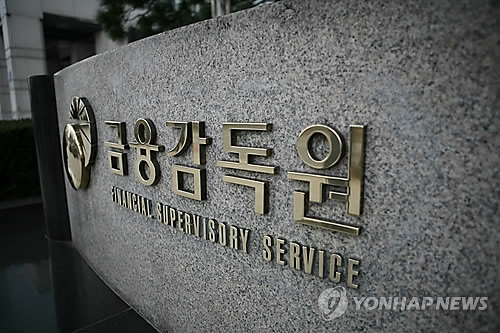South Korea's financial authorities agreed Saturday to tighten real-time monitoring of banks' foreign exchange liquidity and other market risks, as the country earnestly prepares for a presidential election far earlier than originally scheduled.
The decision was made at an emergency meeting of senior officials at the Financial Services Commission, the Financial Supervisory Service, the Korea Exchange and the Financial Security Institute, a day after the Constitutional Court ruled in favor of impeaching President Park Geun-hye. The ruling immediately unseated the president, shortening her tenure by nearly a year.

Many expect the election, initially slated for December, to be held in early May.
Officials noted that the country's financial market was not spooked by the ruling.
The benchmark Korea Composite Stock Price Index rose 0.3 percent to close at 2,097.35 hours after the verdict. The local currency also strengthened to 1,157.40 against the US dollar from 1,158.2 in the previous session.
The credit default swaps premium for foreign exchange stabilization bonds dropped 2.1 basis points to 47.1 basis points.
Market watchers were upbeat about the removal of some political uncertainty and positive economic effects from a possible recovery in domestic consumption.
"However, there are still a lot of uncertainties facing our financial market," Jeong Eun-bo, the FSC's vice chairman, said as he presided over the session.
He cited a change in political conditions with the impeachment and North Korea's continued provocations. Externally, the US may speed up its interest rate hikes and designate South Korea a currency manipulator.
Seoul is also at odds with Beijing over Washington's deployment of the Terminal High Altitude Area Defense system here amid economic and political uncertainty in Europe, Jeong pointed out.
"In particular, if the US raises its benchmark rate in the FOMC slated for March 16 (Seoul time), swings in capital flow at home and abroad may expand," he added.
The authorities will monitor all finance-related situations around the clock including the move of foreign capital through the "emergency situation room" that has been in operation since last year, Jeong said.
"We will strengthen cooperation, like information sharing, with the Ministry of Strategy and Finance and the Bank of Korea," he said. "If needed, we will respond swiftly and boldly in accordance with existing contingency plans."
Next week, regulators at the FSC plan to conduct "on-site inspections" of local banks' risk management and the financial watchdog's supervisory activities.
The finance ministry held a separate meeting on macroeconomic policy.
In the session presided over by Vice Finance Minister Choi Sang-mok, officials decided to step up efforts for "communication" with foreign investors to provide accurate information on South Korea's political and economic situations and the government's response.
They also agreed to continue the push for stimulus measures including the front-loading of budget spending and more incentives for investment as well as risk management related to household debt and corporate restructuring. (Yonhap)







